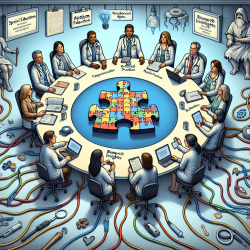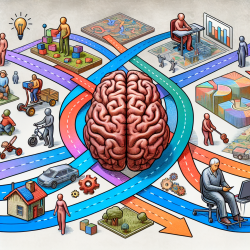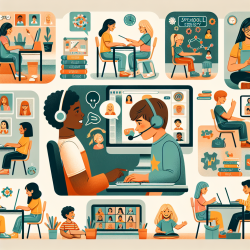Early childhood development (ECD) is a pivotal phase that lays the foundation for an individual's future health, education, and economic prosperity. In developing nations like Rwanda, the potential for ECD interventions to drive population health and socioeconomic progress is immense. The research article "Early childhood development in Rwanda: a policy analysis of the human rights legal framework" offers valuable insights into how Rwanda's commitment to rights-based policy planning has enhanced ECD services. This blog post explores these insights and encourages practitioners to integrate similar strategies into their practices.
The Importance of Early Childhood Development
The early years of a child's life are crucial for cognitive, emotional, and physical growth. Sub-optimal developmental attainment during this period can result in lifelong consequences affecting health, education, and economic opportunities. In Rwanda, recognizing ECD as a human right has led to significant policy implementations aimed at maximizing developmental potential.
Rwanda's Rights-Based Approach to ECD
Rwanda's constitution guarantees the right to health, education, and economic prosperity. This commitment is reflected in the country's policies that integrate multiple sectors to support ECD. The Ministry of Health's use of community health workers (CHWs) exemplifies this approach. CHWs are pivotal in delivering health services at the grassroots level, ensuring pregnant women receive necessary care and tracking child development through innovative systems like SMS alerts.
Community Involvement and Multisector Collaboration
Rwanda's success in improving ECD outcomes is largely due to its emphasis on community involvement and multisector collaboration. Local women's councils play a vital role in raising awareness about ECD and supporting new mothers. By promoting interaction between parents and children, these councils help create supportive environments that facilitate full developmental attainment.
Lessons for Practitioners
- Adopt a Rights-Based Framework: Recognize ECD as a fundamental human right and advocate for policies that support this perspective.
- Leverage Community Resources: Engage local communities and utilize existing networks to deliver ECD services effectively.
- Integrate Services Across Sectors: Collaborate with various sectors such as health, education, and social services to provide comprehensive support for children and families.
- Utilize Technology: Implement innovative solutions like SMS-based tracking systems to monitor child development and ensure timely interventions.
The Path Forward
The Rwandan model demonstrates the power of integrated approaches to ECD. By focusing on local needs assessments, accountability, and solidarity, Rwanda has achieved remarkable improvements in child health outcomes. Practitioners worldwide can learn from these strategies to enhance their own practices and contribute to the realization of children's rights globally.










